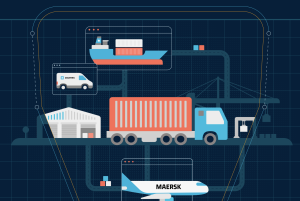 Last month, we started the conversation about the invaluable role that entrepreneurs and SMMEs play in positively impacting families, communities and economies. We also highlighted the need for corporates to become good citizens by contributing to a sustainable SMME sector, and partnering with SMMEs and diversifying their supply chain.
Last month, we started the conversation about the invaluable role that entrepreneurs and SMMEs play in positively impacting families, communities and economies. We also highlighted the need for corporates to become good citizens by contributing to a sustainable SMME sector, and partnering with SMMEs and diversifying their supply chain.
“This month we’re looking at funding these businesses and ask why it is important to cultivate relationships with your bank or financial service provider”, says KeaObaka Mahuma, Head of Supply and Enterprise Development, Barclays Africa, in this month’s SmartProcurement.
“Financial institutions essentially operate in three arenas: banking services, where there is no risk; lending services, where there is a risk as depositors’ money is lent out and must be paid back; and non-financial support, which includes training and financial advice.”
“The general measure on lending money is whether the bank is of the opinion that the money will be paid back. Some of the challenges identified in the SMME sector are that enterprises do not qualify for funding through traditional channels. There are numerous reasons for this, but one of the main ones being the lack of security and poor or non-existent track records,” says Mahuma.
“However, Absa has also realised that access to funding has not been the primary problem – the primary challenge for SMMEs is the lack of prospects to ensure revenue and profitability of an enterprise. At the same time, Absa has also had a lot of corporates looking for the right SMMEs,” he says.
“This has opened the door and created a unique position to address these challenges. Consequently, Absa has developed a model which can provide SMMEs with funding, training, banking products and procurement opportunities.”
“The successful model has allowed for corporates to identify the right SMMEs for their businesses – SMMEs having bankable prospects – and allowed the bank to be able to ensure that lending risk has been reduced. Enabling people with the tools to succeed is a strong drive for Barclays Africa.”
“In order to create sustainability in Africa, people need to be lifted out of poverty. A proven way of doing this is through job creation. The reality is that it has always been necessary for corporates to supply opportunities for small businesses. Research has indicated that small businesses provide 70% to 80% of employment. There are 40-million SMMEs in Africa, but there are 1-billion people on the continent,” Mahuma told SmartProcurement.
“This makes Africa fertile ground for SMME development. Government, through state-owned enterprises and good codes of practice, is starting to enforce this kind of thinking. The revised B-BBEE codes of good practice are a step in the right direction. A lot of good came out of the previous codes, which resulted in some successful enterprise development programmes, however, a limitation was the lack of focus. The spirit of the new codes specifically targets SMMEs in the supply chain. This evolution of economic transformation allows for better and more sustainable enterprises, resulting in improved results going forward,” he concludes.


























